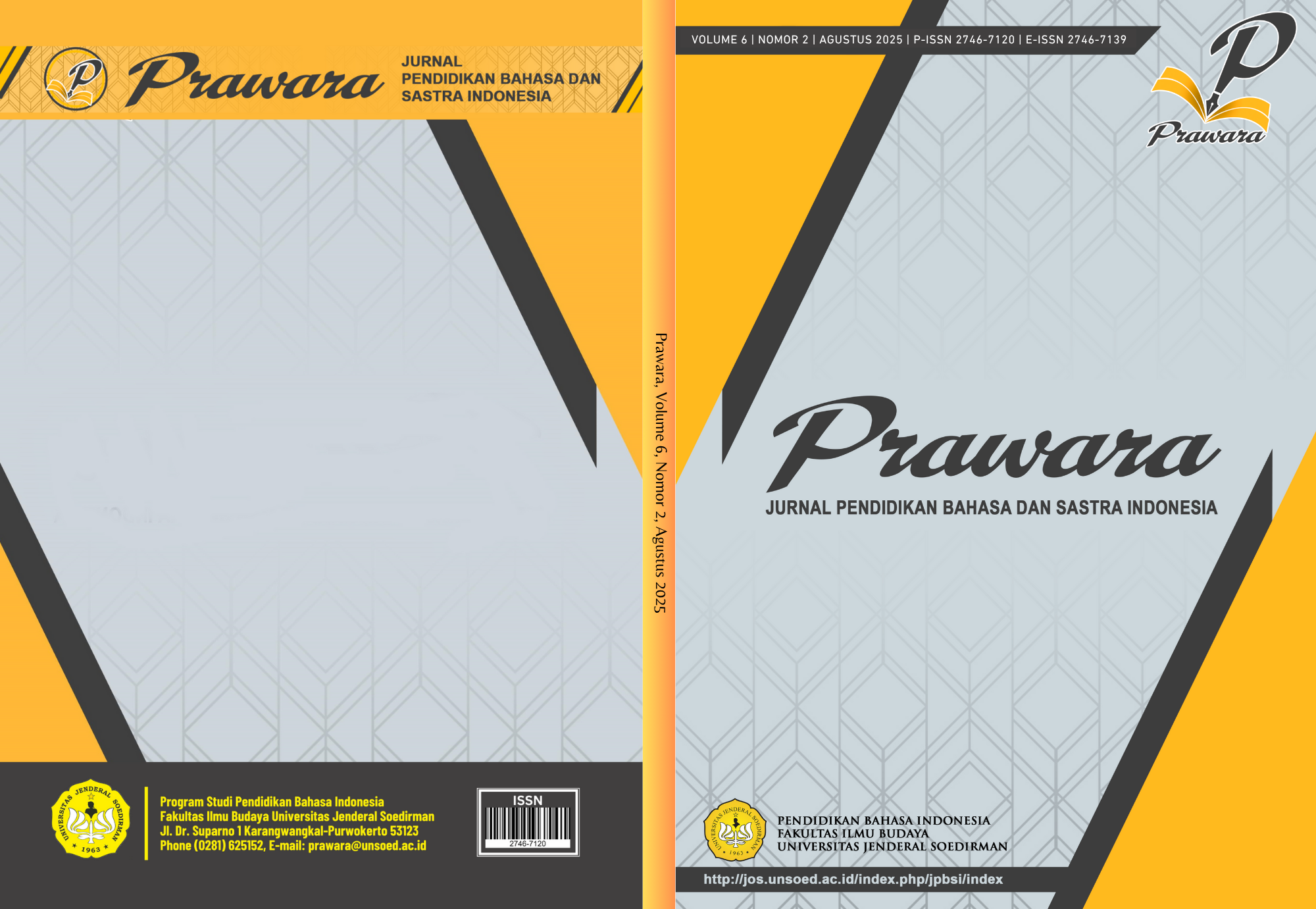Development of E-LKPD with the Theme of Mangrove Forest Conservation News Text Class VII SMP
Abstract
The development of E-LKPD for news text in class VII junior high school is an implementation of integrating technology with learning that can be utilized in meaningful and flexible learning activities, especially assessment. This research uses the Research and Development (R&D) method using the 4D research model. This research used several data collection techniques, including: interviews, observations, and questionnaires. The test subjects of this study were students of class VII-B at SMPN 7 Bangkalan, totaling 5 people in the small group test and totaling 26 people in the large group test, as well as five expert validators of E-LKPD feasibility. The output of this E-LKPD development is in the form of an application that has been validated by five validators. The percentage obtained from: (1) content feasibility validation is 96.66%; (2) language feasibility validation is 95%; (3) presentation feasibility validation is 82.85%; (4) graphic feasibility validation is 93.33%; and (5) construct feasibility validation is 88.57%. Then, the results of the learner response questionnaire test obtained a score of 87.65% in the small group test and 83.27% in the large group test with a very feasible caterogy to be used in learning.

This work is licensed under a Creative Commons Attribution 4.0 International License.
Authors who publish with Prawara: Jurnal Pendidikan Bahasa dan Sastra Indonesia agree to the following terms:
- Authors retain copyright and grant the journal right of first publication with the work simultaneously licensed under a Creative Commons Attribution License (CC BY) that allows others to share the work with an acknowledgment of the work's authorship and initial publication in this journal.
- Authors are able to enter into separate, additional contractual arrangements for the non-exclusive distribution of the journal's published version of the work (e.g., post it to an institutional repository or publish it in a book), with an acknowledgment of its initial publication in this journal.
- Authors are permitted and encouraged to post their work online (e.g., in institutional repositories or on their website) prior to and during the submission process, as it can lead to productive exchanges, as well as earlier and greater citation of published work.

This work is licensed under CC BY 4.0 .




.png)





 UNIVERSITAS JENDERAL SOEDIRMAN
UNIVERSITAS JENDERAL SOEDIRMAN
